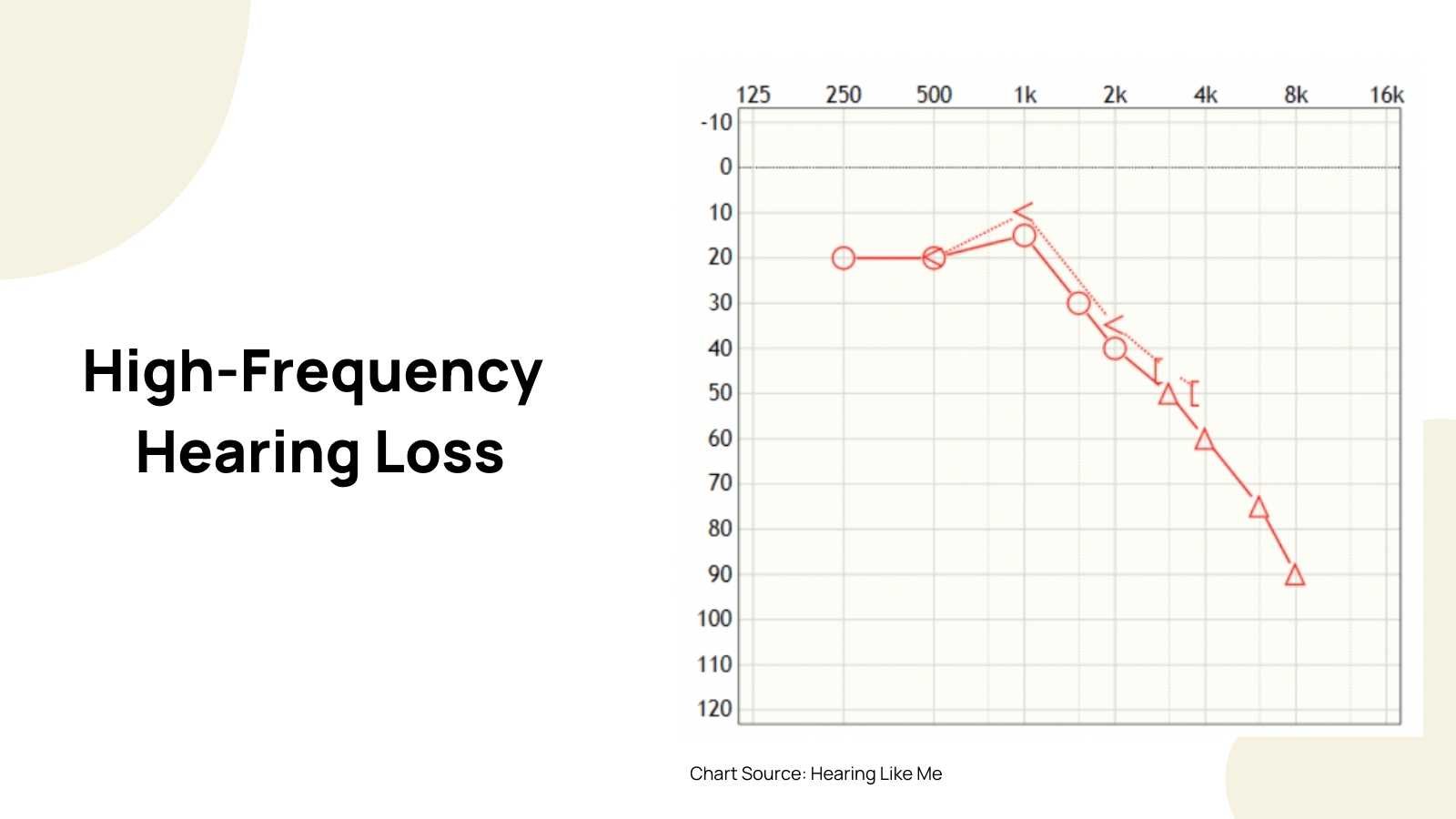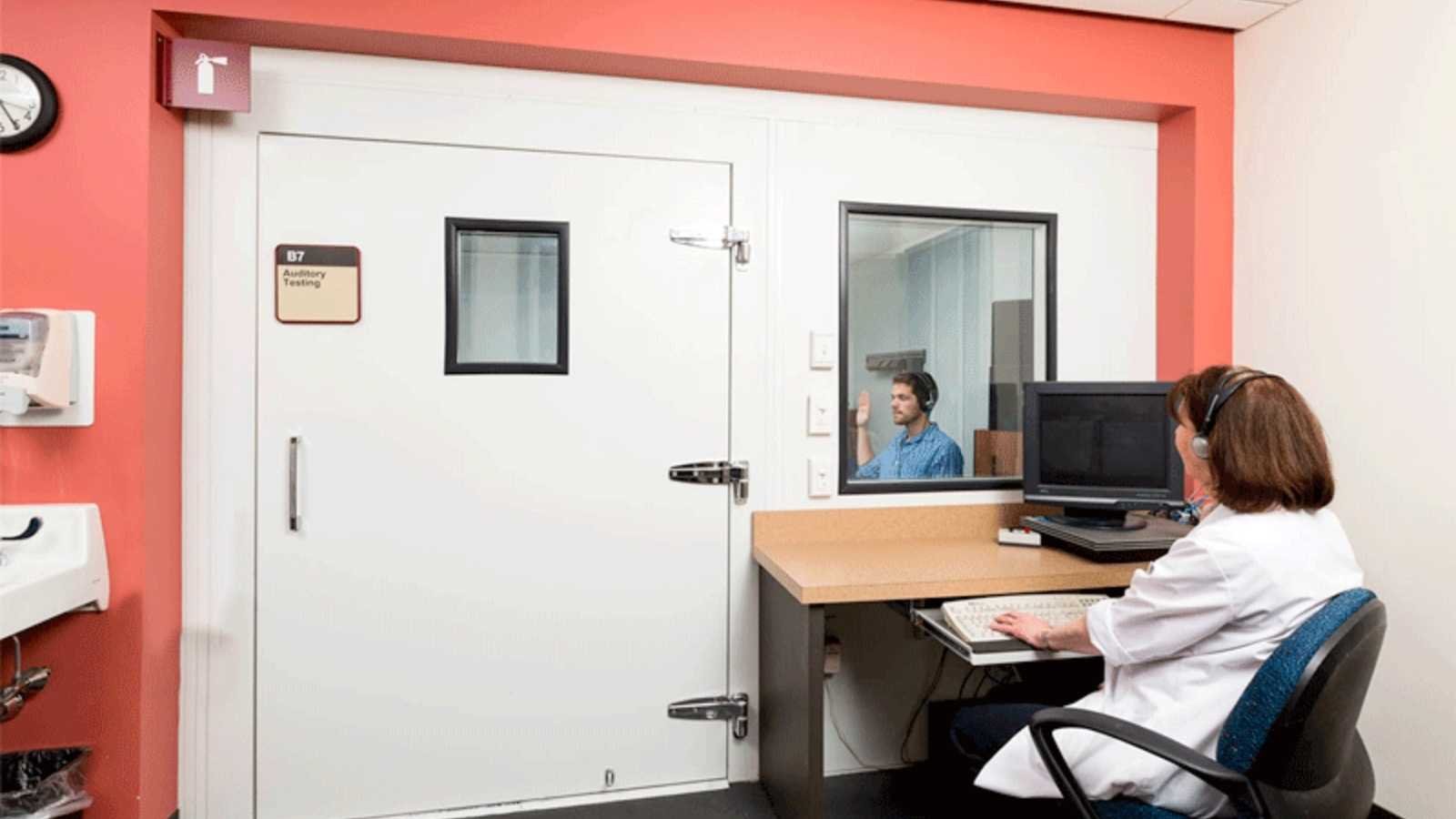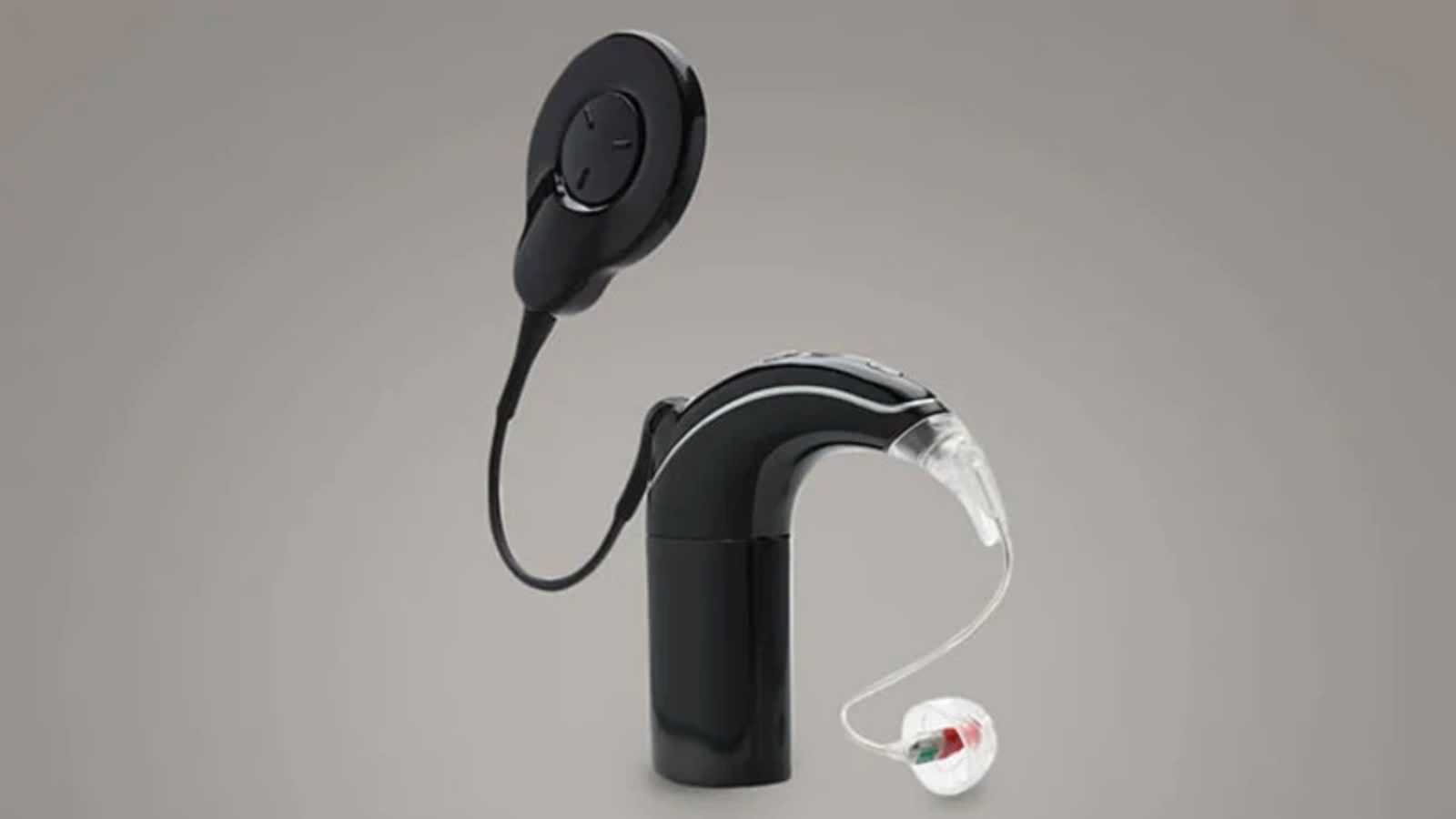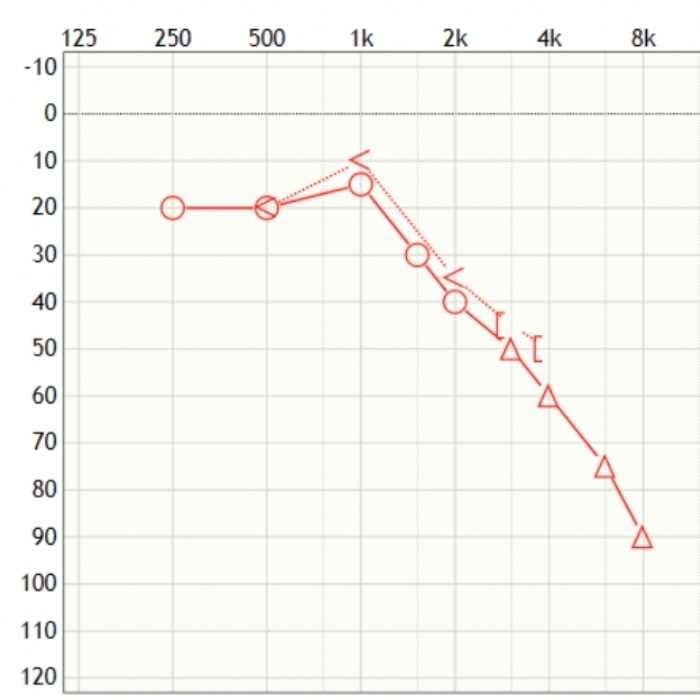Key Takeaways:
- High frequency hearing loss is one of the most common forms of hearing loss.
- This type of hearing loss can come from noise exposure, aging, a combination of factors, in addition to medication side effects (i.e., ototoxic medications).
- Today, we have several different treatment options depending on the severity: everything from OTC hearing aids, prescription hearing aids, and cochlear implants.

Do you or someone you know have trouble hearing people clearly? Does it sound like people are mumbling?
High-frequency sensorineural hearing loss may be to blame.
This type of hearing loss can be caused by several factors and can significantly impact your quality of life if left untreated.
In this article, we'll go over what high-frequency hearing loss is, the signs and symptoms to look out for, the different causes, how to test for it, treatments, and how to prevent it from happening or getting worse.
What is High-Frequency Hearing Loss?
High-frequency sensorineural hearing loss means the inner ear has difficulty interpreting or picking up certain high-pitched sounds. Most of the time, high-frequency hearing loss results from hair cells in your inner ear being damaged or not working properly.
Wait, did you say that hair in the ear causes hearing loss?
Not quite. The cells inside the ear get their name because they resemble strands of hair. When those cells are damaged, louder sounds are required for them to respond and send auditory signals to the brain.
Ok, those cells are damaged, but what does that mean exactly?
High-frequency hearing loss practically shows up in lost speech clarity. You might hear a word like "first" as "thirst" or "toes" as "shows."
In speech, the consonant sounds at the ends of the words are high-frequency sounds. If it's difficult to hear those sounds, the clarity of the words is lacking, and conversations will require more effort.
When you spend more time trying to understand the individual words, it's harder to be present in the conversation. The experience can be incredibly frustrating.
If you have high-frequency hearing loss, your audiogram will slope down on the right side.

Symptoms of High-Frequency Hearing Loss
- Speech lacks clarity
- Trouble understanding women's and children's voices
- Problems understanding in background noise
- Tinnitus
The most common symptom of high-frequency hearing loss is difficulty understanding speech, especially in the presence of background noise. Other symptoms include tinnitus (ringing in the ears), which is often accompanied by high-frequency hearing loss.
High-frequency sensorineural hearing loss commonly has a gradual onset over a period of years.
Remember those hair cells we mentioned? At birth we are born with around 16,000 of them. However, it may not be until 30 - 50% of them are damaged that the hearing loss is noticeable.
If you experience any of the symptoms above, it is helpful to see a doctor or audiologist so they can properly diagnose your condition. High-frequency hearing loss can affect your quality of life, and it's important to monitor your hearing as part of your overall health.
Causes of High-Frequency Hearing Loss
#1. Noise Damage

Exposure to loud sounds is one of the most common causes of high-frequency hearing loss.
Also known as acoustic trauma, noise damage harms those tiny hair cells. If it happens often enough, or the volume is loud enough, the damage is permanent.
Normal hair cells stand nice and tall, like a field of wheat. If the sound is loud enough, it's like a small tsunami comes through: the hair cells have a tough time weathering the storm. When that's the case, a 'noise notch' or a steeply sloping high-frequency hearing loss develops, making speech harder to understand.
#2. Age-Related High - Frequency Hearing Loss

Just as vision changes are common as we age, hearing loss becomes more common with age.
Have you noticed how the carpet near an entryway receives more wear than it does in other areas of the room? The same is true for your cochlea! High-frequency hair cells and nerve fibers are located at the 'entrance' of the cochlea and tend to receive more wear over time.
Hence the tendency for high-frequency hearing loss as we age.
Age-related hearing loss, also known as presbycusis, affects high frequencies and may range from mild to profound.
As with many health issues, the degree of hearing loss with age will depend on overall health, noise exposure, and genetic predisposition.
There are four main contributors to hearing loss that can come with age:
1) sensory - those hair cells(!),
2) metabolic - health conditions, such as diabetes or cardiovascular conditions, can affect blood flow to the ear,
3) mechanical - stiffening of the structures in the cochlea,
4) neural - interference with the neural signals going to the brain
How to Test for High-Frequency Hearing Loss?
Other Causes of High-Frequency Hearing Loss
Factors other than noise and aging can also cause or exacerbate this type of hearing loss: certain medications or head trauma.
Medications that can cause hearing loss include: chemotherapeutic agents such as cisplatin, loop diuretics, antimalarials, non-steroidal anti-inflammatory drugs (NSAIDs), and acetaminophen.
If you're concerned about whether your medications affect your hearing, check with your physician.
Testing For High-Frequency Hearing Loss

Wondering if you have high-frequency sensorineural hearing loss? Try our five-minute hearing screener here.
A comprehensive hearing evaluation will give a more detailed picture of your hearing.
An audiogram is a graph that shows what your hearing looks like at each frequency. Through a series of tests, the audiologist can also determine the source of your hearing loss: auditory nerve, inner ear, or middle ear.
The results from this test will also show how well you understand speech, in addition to your degree of hearing loss.
It's important to know all of this information so that you can receive the best possible recommendations for hearing aids or other technology that can best help you.
If you think you may have high-frequency hearing loss, it is helpful to consult an audiologist so they can properly diagnose your condition.
What are available treatments for high-frequency hearing loss?
Unfortunately, there is no cure for high-frequency hearing loss. At present, once hearing damage is done, it's permanent.
However, there are treatments available that can help you hear and communicate better, making everyday life more manageable.
These treatments include amplification devices, such as hearing aids, or assistive listening devices, such as a remote microphone, to help with background noise. Some people also find relief from tinnitus through sound therapy or other relaxation techniques.

In some cases, a particular type of cochlear implant, called a hybrid, can be an option for high-frequency sensorineural hearing loss. Cochlear implants are best for those with steeply sloping hearing loss, allowing hearing at low frequencies but very little at high frequencies. Cochlear implants are typically prescribed when the volume from a hearing aid doesn't provide enough clarity.
A hybrid cochlear implant combines a person's natural low-frequency hearing while providing high-frequency information to the brain through an electrical signal.

This option is something to consider if hearing aids don't provide enough benefit. If you want to learn more, you can speak with an audiologist or contact a neurotology clinic to discuss a cochlear implant evaluation.
Prevention of high-frequency hearing loss

You can take some preventative measures to reduce your risk of high-frequency hearing loss. Here are several things you can do:
- Try the NIOSH app to check how loud is too loud. Avoid staying long in any setting above 80 dB (A).
- Don't turn your headphone volume all the way up. Better yet: limit the volume on your phone for streaming.
- Choose the proper hearing protection. Wear hearing protection in loud environments.
- Properly insert foam earplugs (roll, plug, hold).
If you are exposed to loud noise regularly, it is important to take precautions to protect your hearing. Wearing earplugs or earmuffs can help reduce your risk of developing this condition.
Conclusion
If you experience difficulty hearing or understanding others, it's a good idea to schedule a hearing test with an audiologist. High-frequency hearing loss can make communication frustrating. However, treatment options are available that can help improve your communication and quality of life. And don't forget, using hearing protection can help prevent sensorineural hearing loss from developing in the first place.






